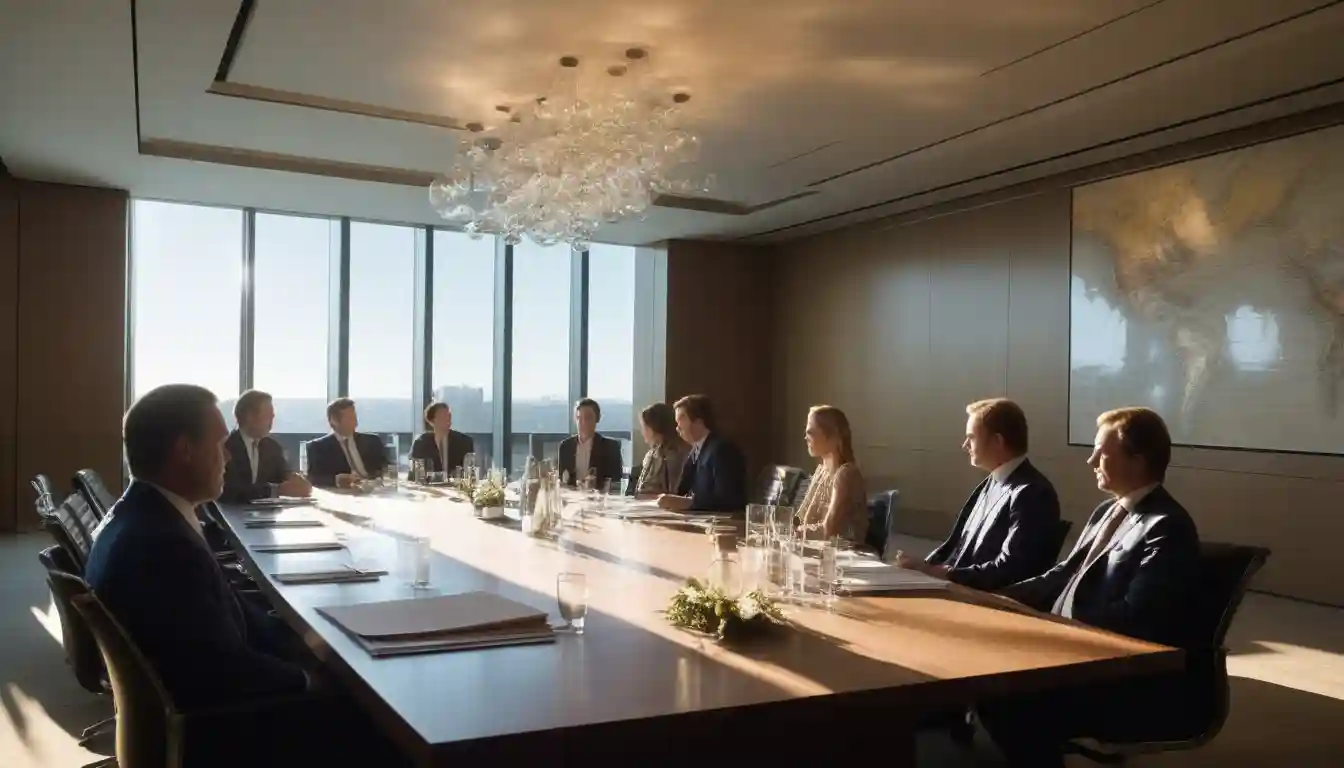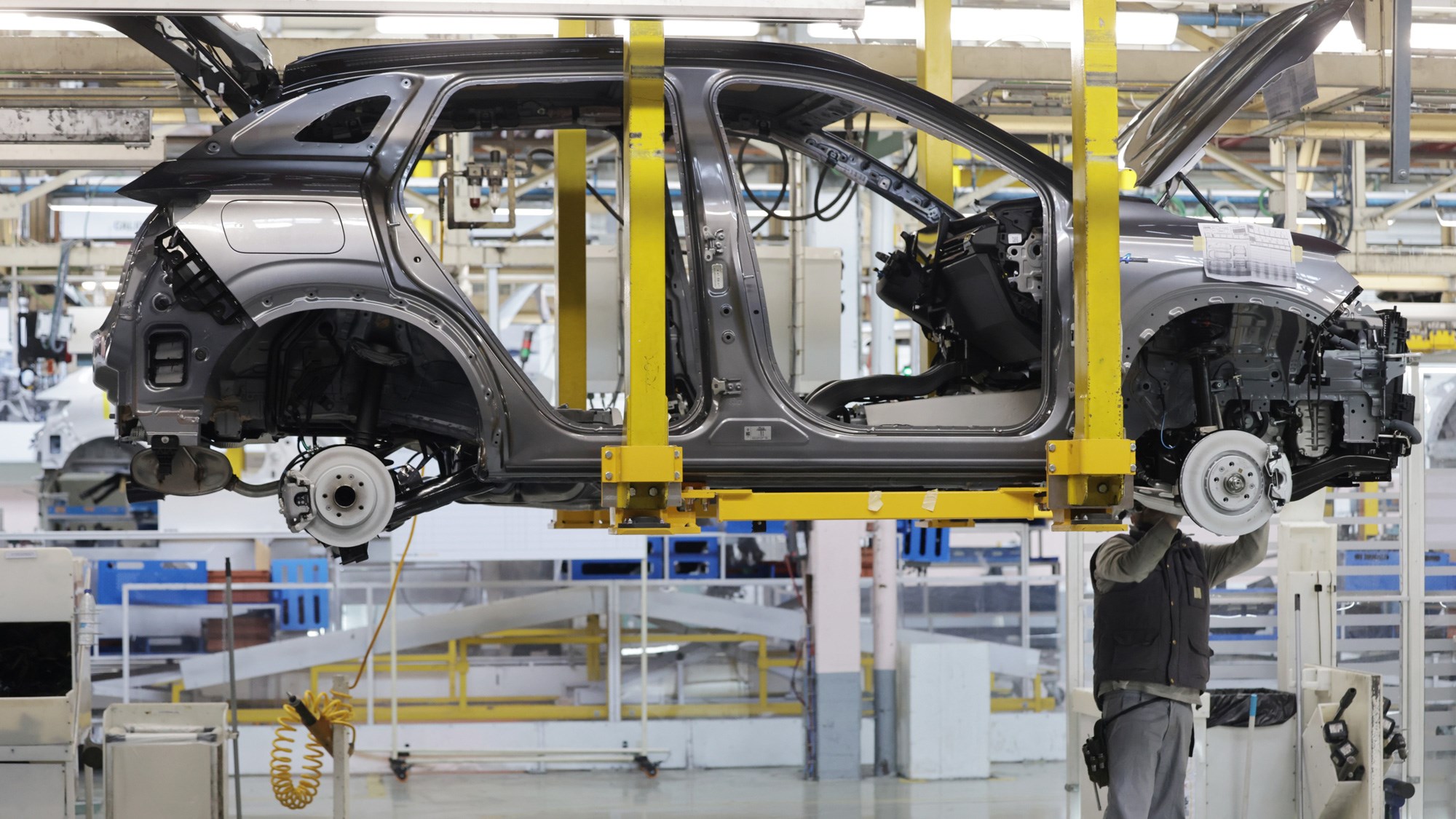
Kering Shareholders Back Former Renault Boss to Lead Luxury Turnaround After Company Profits Plunge 46%
Kering Bets Big on Industrial Rigor: De Meo's €20M Mandate to Resurrect Luxury Giant
Shareholders overwhelmingly approve automotive turnaround specialist as CEO, signaling strategic pivot from creative tradition to operational discipline
PARIS — Kering shareholders delivered a resounding 98-99% approval for Luca de Meo's appointment as chief executive, clearing the path for the automotive turnaround specialist to assume control of the struggling luxury conglomerate on September 15.
The extraordinary shareholder meeting formalized what industry observers see as more than a leadership change—it represents a fundamental strategic pivot for the €17.2 billion luxury house, trading creative continuity for the promise of operational reinvention at a moment when the company faces its steepest financial decline in years.
The Anatomy of a Luxury Crisis
Kering's decision to recruit outside the fashion industry reflects the severity of its current predicament. 
Kering's Net Profit and Sales Decline in H1 2025.
| Metric | H1 2025 Value | Reported Change (YoY) | Comparable Change (YoY) |
|---|---|---|---|
| Revenue | €7.6 billion | -16% | -15% |
| Net Income Attributable to the Group | €474 million | -46% | N/A |
| Recurring Operating Income | €969 million | -39% | N/A |
The numbers reveal a company caught in a perfect storm of strategic missteps and market headwinds. Net debt has surged from near-zero in 2021 to approximately €10.5 billion by end-2024, bloated by ambitious acquisitions including the €3.5 billion Creed purchase and a 30% stake in Valentino—all financed precisely as luxury demand began its cyclical retreat.
Kering's Net Debt Evolution from 2021 to 2024.
| Year | Net Debt (in millions of Euros) |
|---|---|
| 2021 | 168 |
| 2022 | 2,300 |
| 2023 | 8,500 |
| 2024 | 10,500 |
"De Meo inherits a balance sheet stretched thin just when the business needs maximum flexibility," notes one European luxury analyst. "The debt-funded diversification strategy collided with Gucci's momentum loss and broader China weakness."
Short interest in Kering shares has climbed to 10.7%, the highest level since 2014, even after a 33% rally following de Meo's initial nomination in June. This skeptical positioning underscores market doubts about whether automotive-style operational rigor can successfully navigate luxury's nuanced creative ecosystem.
The Outsider's Playbook
De Meo brings a decorated turnaround résumé spanning Fiat, Renault, and senior roles across Audi, Toyota Europe, and SEAT. His "Renaulution" strategy at Renault delivered profitability within 18 months through platform simplification, cost discipline, and a strategic shift from volume to value—precisely the operational muscle Kering's board believes necessary.

At the shareholder meeting, de Meo outlined his immediate priorities: "clear and strong" decisions focused on speed, integration, profitability, debt reduction, and cost cuts before year-end, with a comprehensive strategy presentation scheduled for spring 2026. The language signals industrial-grade urgency rare in luxury's traditionally patient approach to brand building.
His compensation package reflects both the challenge's magnitude and the board's commitment. The €20 million sign-on bonus—€15 million in cash plus €5 million in Kering shares—primarily compensates for forfeited Renault incentives, while his €2.2 million fixed salary and performance-based variables tie rewards directly to turnaround milestones.
When Governance Meets Desperation
The simultaneous approval of governance changes—separating chairman and CEO roles for the first time in two decades—reveals the Pinault family's recognition that business-as-usual won't suffice. François-Henri Pinault retains the chairman position while ceding operational control, a structure that should accelerate decision-making previously constrained by centralized authority.

This governance evolution carries particular significance given Artémis' controlling stake—42% of capital and 59% of voting rights. The family's willingness to dilute direct operational influence suggests genuine concern about Kering's trajectory and confidence in de Meo's prescription.
The CEO manages a company's daily operations and strategic execution, while the Chairman leads the Board of Directors, focusing on corporate governance and oversight. These distinct roles are crucial for effective governance, with the Chairman often ensuring the board independently supervises management.
The Gucci Equation
Any Kering turnaround ultimately pivots on Gucci's rehabilitation. The brand's H1 2025 sales decline to €1.46 billion exposes fundamental challenges beyond cyclical softness: product direction uncertainty, over-dependence on wholesale channels, and inventory management issues that have pressured full-price sell-through rates.

Industry sources suggest de Meo's initial focus will target immediate cash generation through approximately 80 store closures, real estate disposals, and working capital optimization—moves that could generate over €1 billion in debt reduction within 18 months. However, the more complex challenge involves reinventing Gucci's product architecture and market positioning without sacrificing brand equity.
"The question isn't whether de Meo can cut costs—his track record there is proven," observes a Milan-based luxury strategist. "The test is whether industrial discipline can coexist with the creative mystique that drives luxury pricing power."
Reading the Market Tea Leaves
For institutional investors, de Meo's appointment presents a rare luxury sector test case: can automotive-derived operational excellence translate to fashion's creative-commercial balance? The early market response suggests cautious optimism, with the post-announcement rally tempered by persistent short interest.
Short interest in Kering (PPRUY) was 212,200 shares as of August 15, 2025, marking a 3.06% decrease from the previous month. The short interest ratio, or days to cover, was 0.5, indicating it would take 0.5 days of average trading volume to cover all short positions. This data is for Kering SA (PPRUY).
Investment professionals should monitor several near-term indicators. First, the pace and scale of asset disposals and store closures, which will signal execution credibility. Second, Gucci's fourth-quarter same-store sales and full-price mix trends, particularly in China and the United States. Third, any strategic decisions regarding the Valentino option, which represents a potential €2-3 billion capital call that current leverage levels can ill afford.
The spring 2026 strategy presentation will prove crucial for longer-term positioning. Analysts expect de Meo to outline a more disciplined capital allocation framework, potentially including portfolio rationalization and clearer brand segmentation to reduce Gucci-dependency risks.
Investment Implications and Scenarios
Current fundamentals suggest a binary outcome framework. The bear case assumes continued Gucci weakness amid persistent China softness, potentially driving 2026 revenues toward €15-16 billion with EBIT margins compressed to 11-12%. Under this scenario, elevated leverage constrains strategic options while multiple expansion remains elusive.
Projected Kering Revenue and EBIT Margin Scenarios for 2026.
| Fiscal Year End (December) | Projected Revenue (EUR Million) | Projected EBIT Margin (%) |
|---|---|---|
| 2025 | 14,923 | 11.52 |
| 2026 | 15,456 | 13.33 |
| 2027 | 16,491 | 15.08 |
The base case anticipates operational improvements preceding demand recovery—2026 revenues stabilizing around €16-17 billion with margins recovering to 14-15% through cost discipline and channel mix improvements. Successful debt reduction exceeding €1 billion could drive meaningful multiple re-rating as investors price execution credibility over growth uncertainty.
The bull case requires both operational excellence and market recovery, potentially delivering €17-18 billion revenues with margins approaching 17-18%. Such performance would likely shift investor focus from turnaround execution to growth reinvestment opportunities, including accelerated Valentino integration and expanded Beauté ambitions.
The Countdown Begins
De Meo assumes office September 15 with unusual clarity about immediate priorities and stakeholder expectations. His automotive background provides tested frameworks for operational transformation, while the governance structure offers necessary authority to implement difficult decisions quickly.
However, luxury's fundamental economics—where brand perception drives pricing power—require a delicate balance between operational rigor and creative freedom. De Meo's ultimate success will depend not just on delivering promised cost savings and debt reduction, but on preserving the intangible brand equity that justifies luxury's premium economics.
Brand equity is a pivotal concept in the luxury goods sector. It represents the crucial intangible value that luxury brands cultivate, fundamentally shaping their market position and marketing strategies.
The clock starts ticking in six days. By spring 2026, both Kering's direction and de Meo's legacy will be substantially clearer. For an industry watching one of its major players attempt radical reinvention, the stakes extend well beyond a single company's fortunes.
Investment decisions should consider individual risk tolerance and professional financial guidance. Past performance does not guarantee future results.